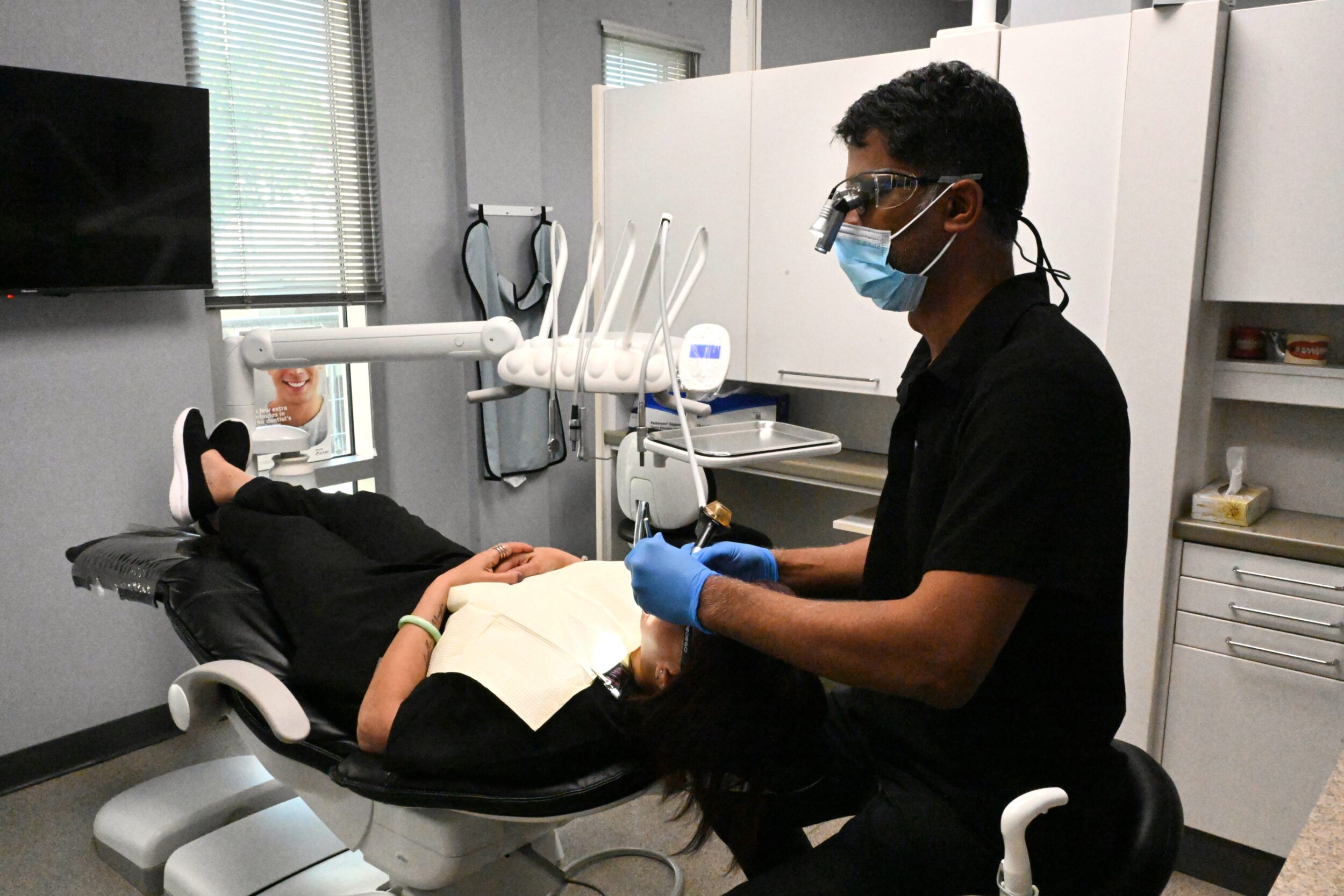Perinatal and Infant Oral Health in Calgary, AB
Pregnancy is an exciting time in a woman’s life. A pregnant woman’s oral and overall health is also crucial during this time. The “perinatal” period begins approximately 20-28 weeks into the pregnancy and lasts for 1-4 weeks following the delivery of the infant. An expectant mother often forgets to schedule a dental checkup when preparing for her new baby.
Research suggests, however, that maternal periodontal disease (gum disease) is linked to premature births, low birth weight babies, preeclampsia, and gestational diabetes. Therefore, maintaining excellent oral health throughout pregnancy is of paramount importance for mothers.

What are the benefits of perinatal dental checkups?
Infants and young children are at risk of adverse outcomes due to maternal cariogenic bacteria. It is for this reason that the American Academy of Pediatric Dentistry (AAPD) recommends that expectant mothers receive dental checkups and counseling regularly, in order to prevent, intervene, and treat dental problems.
For expectant mothers, here are some perinatal oral care tips:
- Floss and brush your teeth –
To eliminate harmful oral bacteria, use ADA-approved, fluoridated toothpaste at least twice a day, and floss at least once. It is also recommended that you use an alcohol-free mouthwash on a daily basis. - Chew gum –
By chewing 3-5 times daily, xylitol, a natural substance, has been shown to reduce infant and toddler caries (cavities). Xylitol is the only sugar substitute that has been proven effective in clinical studies when choosing gum. - Diet evaluation –
It is always important to maintain a balanced, nourishing diet, but it is particularly important during pregnancy. Keep a food diary and reduce your intake of sugary and starchy foods. It is believed that sugars and starches provide food for oral bacteria, as well as increasing the risk of tooth decay. - Visit the dentist regularly –
It is important to see your dentist regularly so that he can bolster your homecare preventative efforts and provide excellent advice. Teeth can be checked by the dentist, and strategies for reducing oral bacteria can be provided by the dentist.
What are the best ways to care for the gums and teeth of my infant?
In many cases, parents are unaware that cavity-causing bacteria can be transmitted from their mother or father to their children. Parents transmit this disease by sharing eating utensils and cleaning pacifiers in their mouths. A parent should use different eating utensils from their infant and rinse pacifiers with warm water rather than sucking them.
To enhance infant oral health, parents should also follow the following guidelines:
- Brushing –
Two times a day, brush your teeth gently with a soft-bristled toothbrush and ADA-approved non-fluoridated toothpaste (for children under two). - Flossing –
Cavities can form between teeth as soon as two adjacent teeth appear in the mouth of an infant. Consult a pediatric dentist for advice on flossing an infant’s teeth. - Use of pacifiers –
It is a soothing tool for infants to use pacifiers. If you decide to purchase a pacifier, make sure that it is orthodontically correct (you may ask the pediatric dentist for recommendations). Do not dip pacifiers in honey or any other sweet liquid. - Drinking glasses should be used –
Infant and toddler tooth decay is largely caused by baby bottles and sippy cups. In both cases, a small amount of liquid can be repeatedly sucked into the mouth. The result is that sugary liquid (milk, soda, juice, formula, breastmilk, or sweetened water) is constantly swilling around in the infant’s mouth, which encourages the growth of bacteria and accelerates tooth decay. After an infant’s first birthday, only offer water in sippy cups. - Take your child to the pediatric dentist –
A pediatric dentist should examine the infant around the age of one for a “well baby” appointment. During an examination by the pediatric dentist, the tooth and jaw development will be examined, and strategies for future oral hygiene will be provided. - The gums should be wiped –
As soon as the first tooth emerges, the infant is at risk for early cavities. After every feeding, wipe the gums of young infants with a damp cloth. By doing so, you minimize the risk of early cavities and reduce oral bacteria.
Contact your pediatric dentist if you have any further questions about perinatal or infant oral care.